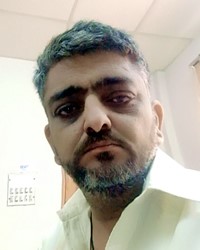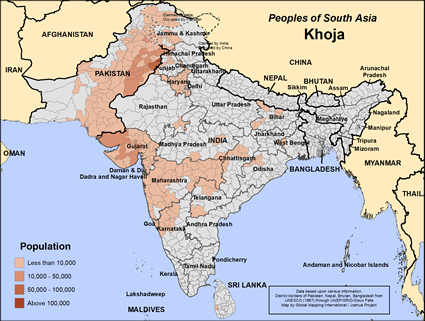Khoja in India

Photo Source:
Anonymous
|

Map Source:
People Group data: Omid. Map geography: UNESCO / GMI. Map Design: Joshua Project.
|
| People Name: | Khoja |
| Country: | India |
| 10/40 Window: | Yes |
| Population: | 426,000 |
| World Population: | 1,397,000 |
| Primary Language: | Gujarati |
| Primary Religion: | Islam |
| Christian Adherents: | 0.00 % |
| Evangelicals: | 0.00 % |
| Scripture: | Complete Bible |
| Ministry Resources: | Yes |
| Jesus Film: | Yes |
| Audio Recordings: | Yes |
| People Cluster: | South Asia Muslim - other |
| Affinity Bloc: | South Asian Peoples |
| Progress Level: |
|
Introduction
The Khoja are a Muslim community who live in west and north India. They originally were a group of Hindu traders who converted to Islam in the 14th century. The word Khoja comes from a Persian word meaning “pious” or “respected one.” Some of the wealthiest entrepreneurs in India are Khoja. They believe in higher education for their children. Khoja have migrated all over the globe, including North America, Europe, Africa and East Asia. When a Khoja person travels to a new place, they instantly have friendly Ismaili Muslims there to offer hospitality and business contacts.
Ministry Obstacles
The branch of Shia Islam that the Khoja converted to is called Ismaili. They believe that the Aga Khan is the successor to the prophet Muhammad. Their sectors of Islam is especially resistant to the gospel.
Outreach Ideas
Pray for the Followers of Christ
Pray for the Entire People Group
Ask the Lord to raise up and send out a new generation of fruitful, multiplying witnesses from among the Khoja.
Ask for God to deliver families and communities within the Khoja from fears that hinder them from embracing his blessings.
Pray for movements to Jesus to sweep through Khoja families, permeating the group from within.
The Khoja would benefit by seeing God's love shown to them by genuine Christ followers. Pray for Christians to live victorious, abundant lives leading to spiritual discussions with their Khoja neighbors.